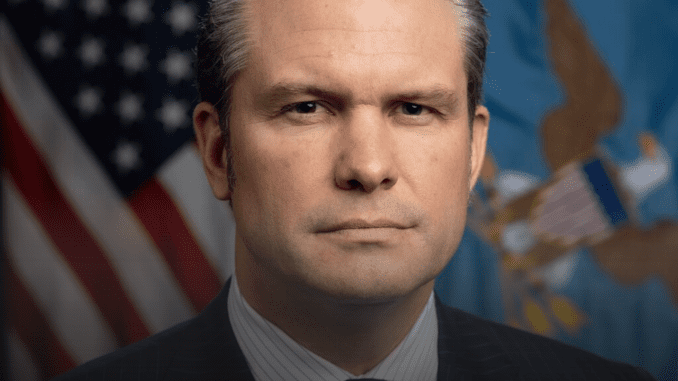
Democrats Demand Accountability for Yemen Strike Disclosure
By Oshadhi Gimesha, Lead Journalist | Editor-in-Chief Approved
A Look at the Hegseth Controversy
Defense Secretary Pete Hegseth is under fire after disclosing war plans in a group chat that included a journalist, just hours before U.S. strikes on Yemen. As of March 24, 2025, Democrats are calling for accountability. For U.S. and global observers, this breach raises serious security concerns.
Key Points
- Hegseth shared war plans in a group chat on March 15, 2025, before Yemen strikes.
- The chat included a journalist, leading to a security breach confirmed on March 24, 2025.
- Democrats demand action, citing risks to national security and military operations.
A National Security Breach Unfolds
The U.S. Defense Secretary Pete Hegseth has sparked controversy after sharing sensitive war plans in an encrypted group chat that mistakenly included a journalist. On March 15, 2025, Hegseth texted operational details of forthcoming U.S. strikes on the Houthi militia in Yemen, just two hours before the attacks were launched. The White House confirmed the breach on March 24, 2025, prompting sharp criticism from Democrats who argue that this lapse jeopardizes national security.
Incompetence so severe that it could have gotten Americans killed.
— Seth Moulton (@sethmoulton) March 24, 2025
There is no world in which this information should have been shared in non-secure channels. Hegseth is in so far over his head that he is a danger to this country and our men and women in uniform.… https://t.co/gD2Hyc5doY
Pete Hegseth texting out war plans like invites to a frat party. https://t.co/vPqblS7znv
— Tim Walz (@Tim_Walz) March 24, 2025
This is blatantly illegal and dangerous beyond belief.
— Elizabeth Warren (@SenWarren) March 24, 2025
Our national security is in the hands of complete amateurs.
What other highly sensitive national security conversations are happening over group chat? Any other random people accidentally added to those, too? https://t.co/voZY5a38tc
It would be an episode of Veep if it wasn’t so dangerous and just plain dumb. Really dumb and epically irresponsible. People need to lose their jobs over this. Preferably Hegseth. pic.twitter.com/8ncpsp3rjE
— Andy Kim (@AndyKimNJ) March 24, 2025
The people in charge of ensuring U.S. national security coordinate classified operations via Signal? And didn’t even realize they had a reporter in the chat … https://t.co/JirQVUNv59
— Sabrina Singh (@sabrinasingh24) March 24, 2025
The group chat, hosted on the commercial messaging app Signal, was intended for senior national security officials, including Vice President JD Vance and Secretary of State Marco Rubio. However, it also included Jeffrey Goldberg, the editor-in-chief of The Atlantic, who was added by mistake by National Security Adviser Michael Waltz. Goldberg revealed that the conversation, which he followed for two days leading up to the strikes, included procedural discussions that escalated to war plans on March 15, 2025. The use of a commercial app for such sensitive information, rather than secure government channels, has intensified the backlash.
Why This Matters Now
The disclosure of war plans on March 15, 2025, came at a critical time, as the U.S. launched strikes against the Houthi militia in Yemen later that day. The breach, confirmed by the White House on March 24, 2025, has raised alarms about the security of classified information under the current administration. Democrats in Congress have seized on the incident, arguing that Hegseth’s actions compromised military operations and endangered U.S. troops by potentially exposing plans to adversaries.
The incident also highlights broader concerns about the use of commercial platforms for sensitive government communications. The group chat included high-level officials discussing operational details, a practice that deviates from standard protocols requiring secure channels for classified information. This lapse could undermine trust in the administration’s ability to safeguard national security, especially amid ongoing tensions in the Middle East.
In Canada and the UK, where U.S. military actions influence global stability, this feels like a warning: a security breach could have wider implications. For French and Dutch observers, it’s a concern—U.S. operations in Yemen affect regional dynamics. Germans and Aussies, focused on international security, see stakes: if such breaches continue, global alliances might be strained by April 1, 2025.
Wins and Losses
Democrats gain political leverage—the incident on March 15, 2025, provides ammunition to challenge the administration’s competence, potentially influencing policy debates by June 1, 2025. National security advocates benefit, as the breach highlights the need for stricter protocols. However, Hegseth and the administration face setbacks—public trust in their handling of classified information is at risk. Military operations might suffer if adversaries exploit such leaks, impacting U.S. strategy by January 1, 2026.
The broader U.S. government could face challenges if Congress pushes for reforms, potentially slowing decision-making. In the U.S. and Germany, where security policies shape alliances, this incident raises a question: can the administration restore confidence?
What’s Next for National Security?
If reforms are implemented by June 1, 2025, the administration might regain trust—think stronger protocols by 2026. But if breaches persist, national security risks could escalate, affecting military operations. For U.S. and global observers: demand accountability or brace for further leaks? Canada, France, and others watch closely—global security means shared challenges. News Zier will follow this as the story evolves.
All facts are independently verified, and our reporting is driven by accuracy, transparency, and integrity. Any opinions expressed belong solely to the author. Learn more about our commitment to responsible journalism in our Editorial Policy.




